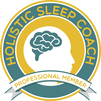|
By Dr David R Lee. Clinical Director at Sleep Unlimited Ltd. How we think and feel not only affects our waking lives, but also has a significant impact on our sleep, especially our ability to fall and stay asleep. There Is an established link between mental health conditions and poor sleep. In fact, one would be hard pressed to find anyone living with an enduring mental health condition who does not also have a coexisting sleep problem. Mental health conditions and insomnia almost universally seem to come hand-in-hand, with insomnia being a flag for many mental health conditions. There is an emerging school of thought that a large number of mental health conditions are regarded as disorders of memory. To expand and taking depression as an example of this: we know that people with depression are prone to a certain thought processes referred to as “cognitive bias” and “selective attention.” When people are depressed they tend to focus on negative situations or stimuli more than on more positive or neutral situations or stimuli (selective attention), and they will tend to see situations as more desperate then people who do not suffer from depressive symptomatology (cognitive bias). These two phenomena interact and, over time, can contribute to the maintenance and increasing severity of a depressive episode, this process is almost always accompanied by poor sleep. Our mental health is driven by how we remember (and forget) things that happen to us in our everyday lives, and sleep is critical in these processes of the “memory” and the “forgettery.” There is a very small part of the brain, right in the centre near the hypothalamus, called the hippocampus. The hippocampus is critically important for the consolidation of memory and Is at Is most active when we are In deep sleep, It acts as a control centre. There is a useful analogy that can explain this a bit more. If you imagine that the inside of your head is a busy office, and that every thought that you have during the day generates a piece of paper in that office. During the course of a day we have many, many thoughts, about everything and anything. Some of those things are important, or even very important (e.g. I need to call the mortgage adviser), but other thoughts may be less so (e.g. which socks shall I wear today?; Ooh - look at that dirty car). But each of these generates a piece of paper. Then we sleep and our secretary (the hippocampus) comes into the office and starts to organise things. This organisation consists of sorting through all the paper and throwing out the rubbish (socks / dirty car); and prioritising the important things (sticking the “call the mortgage advisor” piece of paper on top of the in-tray for tomorrow morning) i.e. encoding this into the cortex as something to be remembered and not forgotten. If we sleep well we will do a good job of organising our office and it will be tidy again by the morning, if we do not sleep well then the office will be a mess in the morning. There is the analogy for deep sleep and the hippocampus, but we are still left standing a bit as to where REM (Dreaming) sleep fits into this picture. Some very recent work suggests that REM sleep helps with the 'forgettery', In order to explain this, we need to first examine the concept of schemas or frameworks. These will be familiar to many people, but, briefly for those unfamiliar with schemas another quick analogy. If someone asks you to make them a cup of tea, and you have never done this before, it will be very difficult for you as you have had no experience in the task, no frame of reference, no “schema” for making tea. If you are then taught to do this, you will have a framework in your head for what (and how) it is to make tea. Once in place, you will then find it much easier to make, say, a cup of coffee, as you already have a very similar schema established in your mind for making tea. Once practiced at making tea and coffee, you will then find it quite easy to make any number of hot beverages (hot chocolate, herbal tea, chai etc.) as your framework for hot drinks is well established in your mind. We know from a large number of studies that learning is much improved after good sleep, and seriously impeded after poor sleep (and especially after no sleep). We are also pretty certain that this is why children need to sleep much more than adults do. This is also thought to be why infants will need to be asleep and awake multiple times in a 24-hour period as they have no schemas, and so need to assimilate much new information (and forget much irrelevant information) into their developing minds. Cue sleep in this phenomenon. The research suggests, that, as we have seen, deep sleep is essential for the consolidation of memory, but also that REM sleep is critically important in the forgetting of irrelevancies or the “forgettery.” Forgetting some things may be just as ‘useful’ to us as remembering others. If we reflect briefly on memory and schemas where we introduced the analogy of the sleeping brain being a cluttered office which is being “tidied” of superfluous information. If our sleep is disturbed then this “clutter” is not being fully cleared away before we awaken in the morning, leaving us feeling discombobulated with an “untidy” office still in need of some spring cleaning in other words if we do not get enough good quality sleep to arrange our memories effectively during the night, then the mind is negatively affected. The consequences of this are potentially twofold. Firstly, our schemas are not as well organised as they could be, and this “cluttering” potentially aids in the precipitation and maintenance of a depressed mood; and secondly, that we begin to build new schemas that may be selectively attending and cognitively biased to negative situations or stimuli, and so the depressive state becomes self-perpetuating, even hard-wired into our neural pathways. This idea is relatively novel, requiring further research to explore in detail and also explored for other mental health conditions, but the principle remains sound and extends beyond depression and into other mental health conditions. So if mental health conditions can be seen as a disorder of memory, and if memory is schematically organised, driven and arranged; then sleep, which has such a pivotal role in that schematic organisation and arrangement, must be regarded as fundamental to the maintenance of our mental health, whether that be healthy or poorly, and everywhere else in between. If you or someone you know is having trouble with either their sleep or another mental health problem and wants to speak in confidence then please do contact us for advice, guidance and signposting to appropriate services and professionals trained in the management of these conditions. Further information is available in “Teaching the World to Sleep” by Dr David R Lee. 2016. Routledge, London. Available on Amazon at: http://tiny.cc/8qn3iz References
Landmann, N., Kuhn, M., Piosczyk, H., Feige, B., Baglioni, C., Spiegelhalder, K., Frase, L., Riemann, D., Sterr, A., & Nissen, C. (2014). The reorganisation of memory during sleep. Sleep Medicine Reviews 18(6): 531 – 41. doi:10.1016/j.smrv.2014.03.005. Maguire, E.A., Gadian, D.G., Johnsrude, I.S., Good, C.D., Ashburner, J., Frackowiak, R.S., & Frith, C.D. (2000). Navigation-related structural change in the hippocampi of taxi drivers. Proceeds of the National Academy of Sciences of the United States of America 97(8): 4398 – 403. Manber, R., Edinger, J.D., Gress, J.L., San Pedro-Salcedo, M.G., Kuo, T.F., & Kalista, T. (2008). Cognitive Behavioral Therapy for Insomnia Enhances Depression Outcome in Patients with Comorbid Major Depressive Disorder and Insomnia. Sleep 31 (4): 489 – 495. Riemann, D., Kloepfer, C., & Berger, M. (2009). Functional and structural brain alterations in insomnia: implications for pathophysiology. European Journal of Neuroscience 29(9): 1754 – 60. doi: 10.1111/j.1460-9568.2009.06721.x. Spiegelhalder, K., Espie, C.A., Nissen, C., & Riemann, D. (2008). Sleep-related attentional bias in patients with primary insomnia compared with sleep experts and healthy controls. Journal of Sleep Research 17(2): 191 – 6. doi: 10.1111/j.1365-2869.2008.00641.x. Tang, N.K. (2009). Cognitive-behavioral therapy for sleep abnormalities of chronic pain patients. Current Rheumatology Reports 11(6): 451 – 60
Archit Mehta
9/16/2023 12:05:17
Your ability to explain complex concepts in a clear and concise manner is remarkable. Thank you for this valuable post. To delve deeper, <a href="https://www.digistore24.com/redir/478372/ArchitMehta/" target="_blank">click here</a>.
Annie
3/9/2024 06:46:40
I appreciate the practical tips and advice you've shared in your post. They provide actionable steps that readers can implement. <a href="https://899ae9zjklcplx7i1q1onzgh7x.hop.clickbank.net" target="_blank">click here</a> for more insights. Comments are closed.
|
Categories
All
|
Site Links |
Copyright © - Nadia Edwards 2024, 3 Northbank Road, Cairneyhill, Dunfermline, Fife, KY128RN | Sitemap




